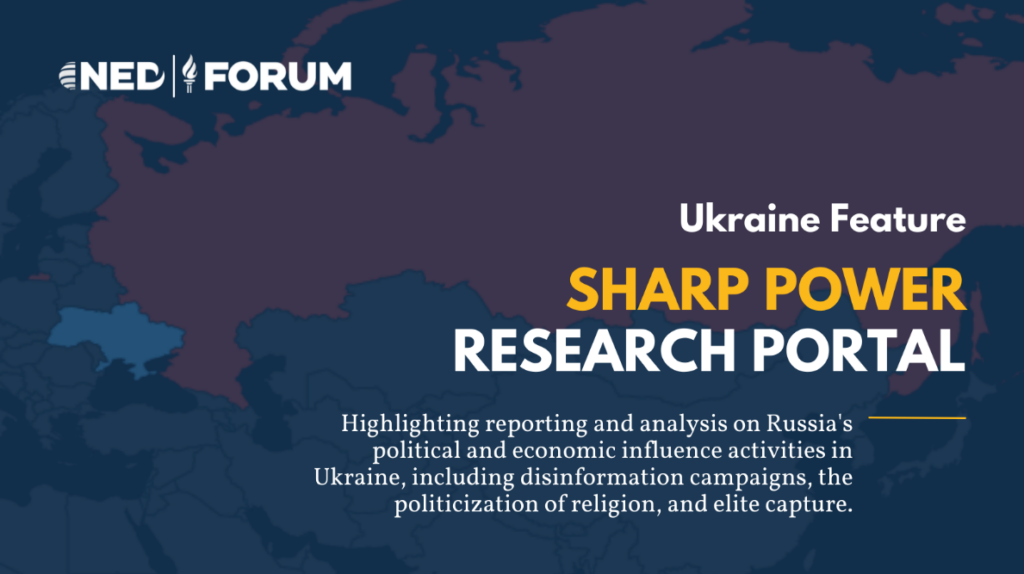A coalition of forty Ukrainian civil society groups today issued The Kyiv Declaration, a six-point appeal to the West’s democracies, listing urgent humanitarian and military demands.
“There is no free and just Europe without a free and just Ukraine,” said Natalia Popovych, Co-Founder and the Chair of the Board at the Ukraine Crisis Media Center. “The Ukrainian nation is fighting not only for our homeland, but for a world safe for democracy.”
 “Ukraine cannot win with courage and conviction alone,” the appeal states, warning that the country’s “way of life, democracy and freedom is being blown apart.” The coalition asks the international community to stand with Ukraine by taking the following actions:
“Ukraine cannot win with courage and conviction alone,” the appeal states, warning that the country’s “way of life, democracy and freedom is being blown apart.” The coalition asks the international community to stand with Ukraine by taking the following actions:
1) Establish safe zones in Ukraine….
2) Provide immediate defensive military aid – including lethal and non-lethal assistance…
3) Implement crippling sanctions to undermine Putin’s war machine….
4) Provide immediate humanitarian aid….
5) Freeze the assets and revoke the visas of Putin’s cronies….
6) Provide equipment to track war crimes immediately….
 “Now is the moment the world must demonstrate its support not only for the sovereignty and territorial integrity of Ukraine, but also for the values of democracy, human rights and freedom,” said Olga Aivazovska, chair of Elections Watchdog Opora (right).
“Now is the moment the world must demonstrate its support not only for the sovereignty and territorial integrity of Ukraine, but also for the values of democracy, human rights and freedom,” said Olga Aivazovska, chair of Elections Watchdog Opora (right).
There are many things which the world can do now, adds the 1st December Initiative Group, a group of Ukrainian human rights defenders and intellectuals, including dissidents under the totalitarian Soviet regime:
- First, it needs to impose harsher sanctions against Russia, and significantly hit the Russian energy, banking, and defense sectors. It must impose a trade embargo on Russia and cut Russia off from the SWIFT international payment system, as well as substantially limit its capacity to sell its gas and oil to fill its military budgets.
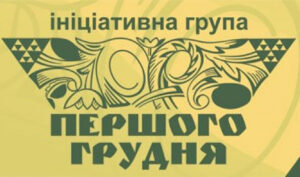 Secondly, Russia must be cut off from all international fora.
Secondly, Russia must be cut off from all international fora. - Thirdly, Ukraine needs military support: air defense systems and protection against Russian missiles and bombings. The world must ensure a no-fly zone over Ukraine. Russia believes that it is waging the war against the U.S. and NATO in Ukraine, and NATO must therefore respond.
- Fourth, Ukraine needs economic support, as the country is suffering catastrophic economic loss. Our country must emerge stronger from this war.
Defeating Putinism
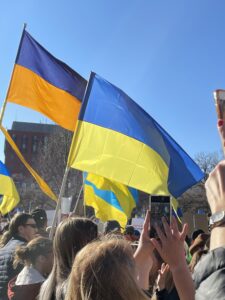 The Ukrainian people’s resistance not only inspires us to rally to their cause, but will inspire believers in the cause of freedom for generations, National Endowment for Democracy President and CEO Damon Wilson told the National Rally to Support Ukraine in Washington, DC (above and right).
The Ukrainian people’s resistance not only inspires us to rally to their cause, but will inspire believers in the cause of freedom for generations, National Endowment for Democracy President and CEO Damon Wilson told the National Rally to Support Ukraine in Washington, DC (above and right).
“Their success is crucial to democracy’s future. It is crucial to defeating Putinism,” he said. “Only when Putin is out of Ukraine, only when Putin is out of the Kremlin, will our freedom be safe and secure.”
Live footage from Reuters, below, shows the crowd of thousands singing patriotic songs, holding flags and placards demanding peace and calling for action to curb Russian aggression.
LIVE: Protest held in DC against Russia’s invasion of Ukraine https://t.co/HcV5qQsjzo
— Reuters (@Reuters) February 27, 2022
If this conflict is a new cold war, it’s one that the autocracies have been pursuing energetically and the democracies have been loath to accept. But now a sudden, energetic unity of the democracies shows the reserves of power that can be brought to bear against the autocracies without going to war, adds George Packer.
To be realist in our age is not to define American interests so narrowly that Ukraine becomes disposable but to understand that the world has broken up into democratic and autocratic spheres, he writes for The Atlantic: that this division shapes everything from supply chains and competition for resources to state corruption and the influence of technology on human minds and societies; that the autocrats have gained the upper hand and know it.
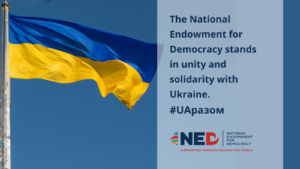 Russia’s invasion of Ukraine, following its earlier efforts to stifle independence and democracy there, as well as in Georgia and Belarus, is the most dramatic but far from the last point of conflict between the two spheres, Packer observes.
Russia’s invasion of Ukraine, following its earlier efforts to stifle independence and democracy there, as well as in Georgia and Belarus, is the most dramatic but far from the last point of conflict between the two spheres, Packer observes.
The celebrated German Field Marshal von Moltke famously claimed that “no plan of operations extends with certainty beyond the first encounter with the enemy’s main strength” – a statement generally interpreted as “no plan survives contact with the enemy.”
Heavyweight boxer Mike Tyson made the same point, albeit more pithily: “Everybody has a plan until they get punched in the mouth.”
Vladimir Putin’s invasion of Ukraine is the latest confirmation of such received wisdom – that wars rarely go to plan, especially if you believe your own rhetoric, notes Lawrence Freedman, the author of Strategy: A History. “Though the Russians may eventually prevail in battle, the first day of the war confirmed what has always seemed likely – that whatever the military victories to come this will be an extraordinarily difficult war for Putin to win politically,” he writes for The New Statesman:
At times in democracies we lament the flabbiness, incoherence, short-sightedness and inertia of our decision-making, compared with autocrats who can outsmart us by thinking long-term and then taking bold steps without any need to convince a skeptical public, listen to critics, or be held back by such awkward constraints as the rule of law. Putin reminds us that autocracy can lead to great errors, and while democracy by no means precludes us from making our own mistakes, it at least allows us opportunities to move swiftly to new leaders and new policies when that happens. Would that this now happens to Russia.
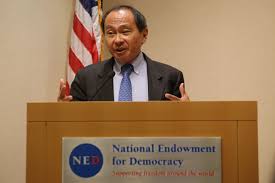
Former NED board member Francis Fukuyama
Ukraine’s push for NATO membership did not prompt Russia to invade it. Rather, Putin’s motive was his intention to eradicate democracy from Eastern Europe, U.S. political scientist Francis Fukuyama told Nikkei.
“The issue for Russia in Ukraine is not NATO membership. They have been using that as an excuse. Nobody has been serious about having Ukraine join NATO for the last 15 years,” he said. “The real issue is Putin’s desire to reconstruct the former Soviet Union and to basically overturn the entire European security order that emerged after the breakup of the Soviet Union.”
Putin’s brazen and unprovoked assault on Ukraine is fast turning his fears of a more resolute Europe, and potentially expanded NATO alliance, into a self-fulfilling prophecy, The Los Angeles Times reports.
“Putin has behaved in a staggering, outrageous fashion to rip up what the Europeans thought were kind of inviolable norms,” said Ian Bremmer, president of the Eurasia Group, a risk assessment firm in New York. The shift among European leaders “shows that this is not about Ukraine, it’s a change in the global order that we have slipped into a new Cold War with Russia.”
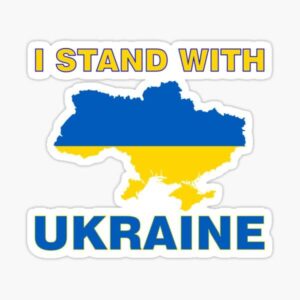 Meanwhile, Hungary’s announcement that it will not allow lethal weapons for Ukraine to transit its territory has attracted widespread condemnation.
Meanwhile, Hungary’s announcement that it will not allow lethal weapons for Ukraine to transit its territory has attracted widespread condemnation.
“How much were they bought off for. Utterly shameful,” former Estonian president Toomas Hendrik Ilves tweeted. “While Russia drops cluster bombs on and fires grad missiles on residential areas.”
The Ukraine invasion does not presage a new Cold War, notes Catholic University’s Michael Kimmage. But that conflict still contains lessons for us. One of them is to move slowly, to build internal resilience, and to have patience, he writes for Politico.
U.S. Senator Mitt Romney, who warned of the geopolitical threat posed by Russia back in 2012, is concerned about “isolationism and …… hero worship of an authoritarian like Putin.”
‘[P]eople are seeing real human beings suffer. And they recognize, this is not a war. It’s not a battle between two militaries,” he tells The Atlantic’s McKay Coppins. “This is a brutal invasion of a free democratic people by an authoritarian thug, and there’s no justification for it. And its brutality and vile nature is able to be seen by people all over the world.”
2. RIA Novosti news agency accidentally published an article, tagged with a publication date of 8AM on February 26, already celebrating a Russian victory and collapse of the Ukrainian state within an anticipated two days. It’s still on their site.https://t.co/oh6nT8Niro
— Thomas de Waal (@Tom_deWaal) February 28, 2022
The RIA Novosti news agency accidentally published an article, tagged with a publication date of 8AM on February 26, already celebrating a Russian victory and collapse of the Ukrainian state within an anticipated two days. It’s still on their site, Carnegie’s Tom de Waal tweeted.
The main theme is that the “operation” is a defeat for the West’s project to defeat Russia. That Putin seized the moment to return Ukraine to its historic Slavic union with Russia and Belarus. Potential NATO candidacy is seen as a symptom of the problem, not the main cause. The author calls this a “new era” he adds. “Russia is restoring its historic unity: the tragedy of 1991, that terrible catastrophe of our history, that unnatural aberration, has been overcome.”
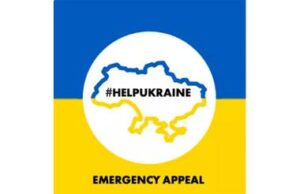 Democracies must respond to the depredations Russia is now inflicting upon the people of Ukraine, says Christopher Walker, Vice President for Studies and Analysis at the National Endowment for Democracy. In the bigger picture, the United States and its democratic allies will need to come to grips with the advanced competition that has emerged to challenge democracy and the values that underpin it, he writes for Just Security:
Democracies must respond to the depredations Russia is now inflicting upon the people of Ukraine, says Christopher Walker, Vice President for Studies and Analysis at the National Endowment for Democracy. In the bigger picture, the United States and its democratic allies will need to come to grips with the advanced competition that has emerged to challenge democracy and the values that underpin it, he writes for Just Security:
This is a multidimensional challenge that will require democratic ambition and innovation in spheres that include but are not limited to: more successfully dealing with the transnational kleptocracy and strategic corruption that have metastasized in ways that subvert systems of all stripes; addressing a dysfunctional and unreliable information landscape; developing more effective capacities to communicate internationally in a far more complex and competitive information environment; and dealing with critical issues of emerging technology that will be integral to the future of freedom.
Since late last year, Western democracies have led an intense, coordinated diplomatic response to Russia’s build-up of troops around Ukraine, says NED’s Wilson. “This is just night and day between the reactions that Putin has faced in previous cycles, because we’ve learned if you don’t stop him, his appetite grows and he goes for more.”
Putin’s aggression has in fact unified Ukraine, NATO, and even the U.S. itself, he told Christian Science Monitor. “There’s not really a big debate here.”
“We can’t pull our punches or support for the aspirations of people who want a democratic future,” Wilson added.

I don’t know what will happen in Ukraine. But as a historian I do believe in the possibility of change. I don’t think this is naivety—it’s realism, adds historian, philosopher and author Yuval Noah Harari.
The only constant of human history is change. And that’s something that perhaps we can learn from the Ukrainians. For many generations, Ukrainians knew little but tyranny and violence, he writes for The Economist. But they chose differently. Despite history, despite grinding poverty and despite seemingly insurmountable obstacles, Ukrainians established a democracy.
To reestablish the Russian empire, Putin needs a relatively bloodless victory that will lead to a relatively hateless occupation, adds Harari. By spilling more and more Ukrainian blood, Putin is making sure his dream will never be realized. It won’t be Mikhail Gorbachev’s name written on the death certificate of the Russian empire: it will be Putin’s, he writes for The Guardian.
Washington and its allies have taken some valuable steps to punish Moscow, say David J. Kramer, John Herbst, and William Taylor. Berlin stopped Nord Stream 2, a natural gas pipeline running from Germany to Russia, and U.S. and European states blocked major Russian banks from accessing Western financing. But the free world has not responded forcefully enough, and democracies are at risk of repeating their unsuccessful response to Russia’s first invasion of Ukraine, they write for Foreign Affairs:
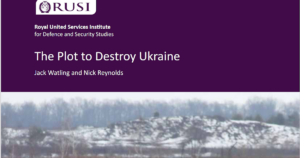 Even the strongest sanctions will not be enough. The United States and its allies should expel Russian ambassadors from their capitals, close any remaining Russian consulates, and shut down the noxious, Moscow-controlled propaganda outlets RT and Sputnik. These outlets are dangerous purveyors of hate, and they are complicit in the Kremlin’s outrageous acts. They cannot hide behind free speech claims.
Even the strongest sanctions will not be enough. The United States and its allies should expel Russian ambassadors from their capitals, close any remaining Russian consulates, and shut down the noxious, Moscow-controlled propaganda outlets RT and Sputnik. These outlets are dangerous purveyors of hate, and they are complicit in the Kremlin’s outrageous acts. They cannot hide behind free speech claims.
Such a shift in strategy will not be politically easy for Western democracies to make, Edward Fishman and Chris Miller suggest. Russia’s rulers benefit from a vast apparatus of repression that lets them suppress discontent. Western leaders, by contrast, must answer to voters who care deeply about their wallets. Such political calculations have already influenced policymaking, they write for Foreign Affairs.
As the U.S. administration marshals action on Ukraine, they will need to guard against the risk that the situation will offer a field day for authoritarians elsewhere, Frances Z. Brown, Senior Fellow and Co-Director of the Carnegie Endowment’s Democracy, Conflict, and Governance Project, writes for Just Security. As such, to make good on their democracy and human rights agenda, Biden’s team will need to continually ask: where else should we be exerting leverage? Where else should we be focusing attention?
We demand an immediate withdrawal of Russian troops and a commitment to political and diplomatic solutions to the crisis that will cause needless suffering and hardship for people throughout the country, said AFL-CIO President Liz Shuler. The US labor federation and its NED-affiliated Solidarity Center joined unions from around the world in expressing solidarity with union partners in Ukraine.
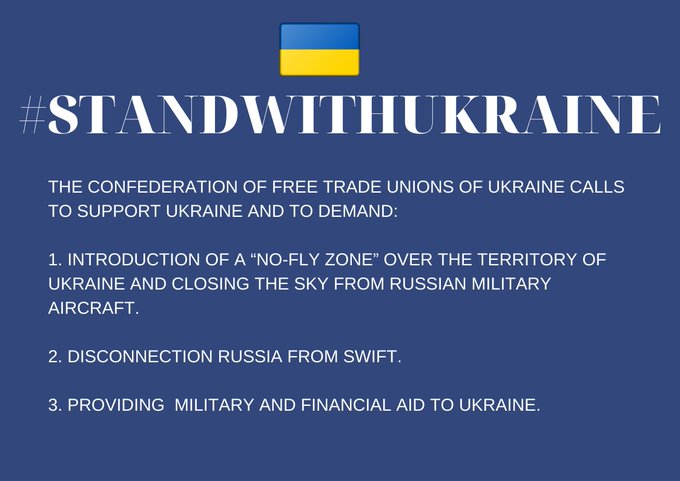
Putin believes that Russia has no choice but to remain as one of the agenda-setting powers of the world. His view of “sovereign democracy” is that a Russia that lacks the wherewithal to defend itself from outside pressure will find itself forced to adopt Western standards or a Chinese diktat, adds Nikolas K. Gvosdev, a professor of national security affairs at the U.S. Naval War College and a non-residential fellow with the Foreign Policy Research Institute.
Key to all of Putin’s plans has been to ensure a friendly and pliable Ukrainian government. Ukraine’s economy, resource base and population are critical for the success of any Russian-led Eurasian Union which is the manifestation of Russia’s ability to create that independent “Eurasian pole of power” that counterbalances a China-led Asian sphere with the Euro-Atlantic world, he contends.
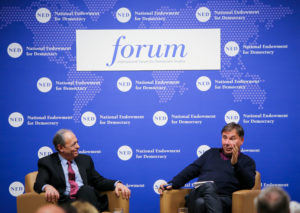 A kind of self-serving denialism pervades Western capitals and prevents us from seeing the obvious. Passionate pleas to defend post-Cold War European order have no meaning because this era is over, says Ivan Krastev (far right), the chairman of the Center for Liberal Strategies, a permanent fellow at the Institute for Human Sciences in Vienna and the author of “Is It Tomorrow Yet? Paradoxes of the Pandemic.”
A kind of self-serving denialism pervades Western capitals and prevents us from seeing the obvious. Passionate pleas to defend post-Cold War European order have no meaning because this era is over, says Ivan Krastev (far right), the chairman of the Center for Liberal Strategies, a permanent fellow at the Institute for Human Sciences in Vienna and the author of “Is It Tomorrow Yet? Paradoxes of the Pandemic.”
In 1993, the great German poet and essayist Hans Magnus Enzensberger predicted that the Cold War would be followed by an age of chaos, violence and conflict, he writes for The New York Times:
Reflecting on what he observed in Yugoslavia and the urban riots in the United States, he saw a world defined by an “inability to distinguish between destruction and self-destruction.” In this world, “there is no longer any need to legitimize your actions. Violence has freed itself from ideology.” Enzensberger was right. He was just too early.
 The pro-democracy group Razom for Ukraine is “focused on purchasing medical supplies for critical situations like blood loss and other tactical medicine items [through] a large procurement team of volunteers that tracks down and purchases supplies and a logistics team that then gets them to Ukraine,” John Woodrow Cox and Ian Shapira write for The Washington Post. Razom — which means “together” in Ukrainian — posted a list of the lifesaving supplies it has already purchased and is asking for more support here, they add in a valuable article on how you can donate to help people in Ukraine.
The pro-democracy group Razom for Ukraine is “focused on purchasing medical supplies for critical situations like blood loss and other tactical medicine items [through] a large procurement team of volunteers that tracks down and purchases supplies and a logistics team that then gets them to Ukraine,” John Woodrow Cox and Ian Shapira write for The Washington Post. Razom — which means “together” in Ukrainian — posted a list of the lifesaving supplies it has already purchased and is asking for more support here, they add in a valuable article on how you can donate to help people in Ukraine.
Russia’s brazen military intervention in Ukraine is the latest evolution of the Kremlin’s efforts to undermine democracy and splinter democratic unity, the NED’s Sharp Power Research Portal adds. The Forum’s research and reporting captures Russia’s political and economic influence activities in Ukraine, including:
- In Fog of Falsehood: Russia Strategy of Deception and the Conflict in Ukraine, Katri Pynnöniemi and András Rácz detail the emergence and evolution of Russian propaganda and disinformation in Ukraine since 2014.
- Using data gathered from the Alliance for Securing Democracy’s Hamilton 2.0 Dashboard, Joseph Bodnar, Kayla Goodson, and Bret Schafer report on the present-day messaging disseminated by Russia officials and state media since November 2021.
- The Centre for Economic Strategy examines Russia’s economic footprint in Ukraine and how Russia has exploited governance gaps to exert influence through the media, political parties, and government debt.
- Peter Mandaville explores the politicization of religion in the Ukraine crisis in “How Putin Turned Religion’s ‘Sharp Power’ Against Ukraine.”
